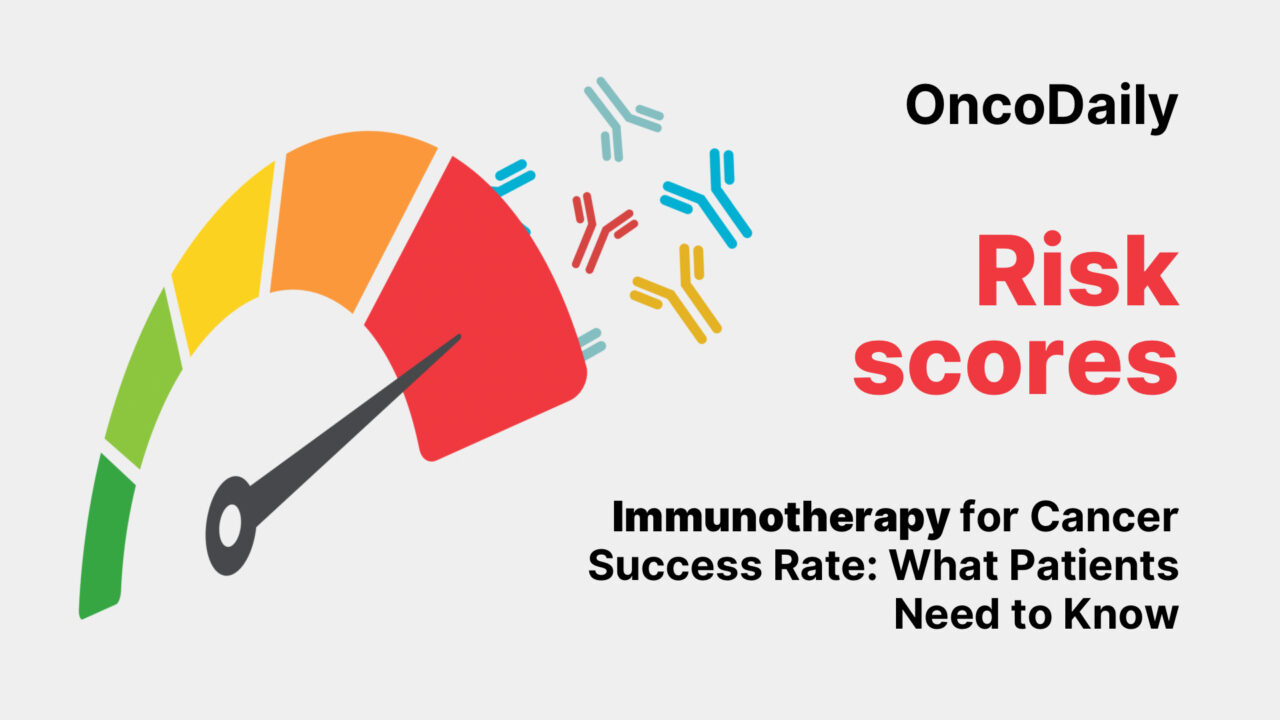
Immunotherapy for Cancer Success Rate: What Patients Need to Know in 2025
Over the past decade, immunotherapy has emerged as one of the most transformative advances in cancer care. Unlike traditional treatments such as chemotherapy and radiation, which directly attack tumor cells, immunotherapy works by harnessing the body’s own immune system to identify and destroy cancer. It has offered new hope to patients across a range of malignancies, including some cancers that were once considered untreatable.
But as more patients hear about immunotherapy in the news or from other survivors, questions naturally arise: How effective is immunotherapy? What is the immunotherapy for cancer success rate across different cancer types? Who benefits most—and why doesn’t it work for everyone?
This article explores the success rates of various immunotherapy approaches, including immune checkpoint inhibitors, CAR T-cell therapy, and cancer vaccines, with insights from large clinical trials and real-world data. It also provides guidance for patients on what to expect and how to discuss immunotherapy with their medical team.
What Is Immunotherapy?
Immunotherapy is a broad term that refers to treatments designed to stimulate or restore the immune system’s ability to fight cancer. The most commonly used forms include:
- Checkpoint inhibitors, which release the brakes on immune cells.
- CAR T-cell therapy, which engineers a patient’s T-cells to recognize and attack cancer.
- Cancer vaccines, which stimulate an immune response against tumor antigens.
- Cytokine therapies, such as interleukins and interferons, which boost immune signaling.
- Oncolytic virus therapies, which use modified viruses to target and kill cancer cells.
These therapies can be used alone or in combination with chemotherapy, radiation, or surgery, depending on the cancer type and stage.
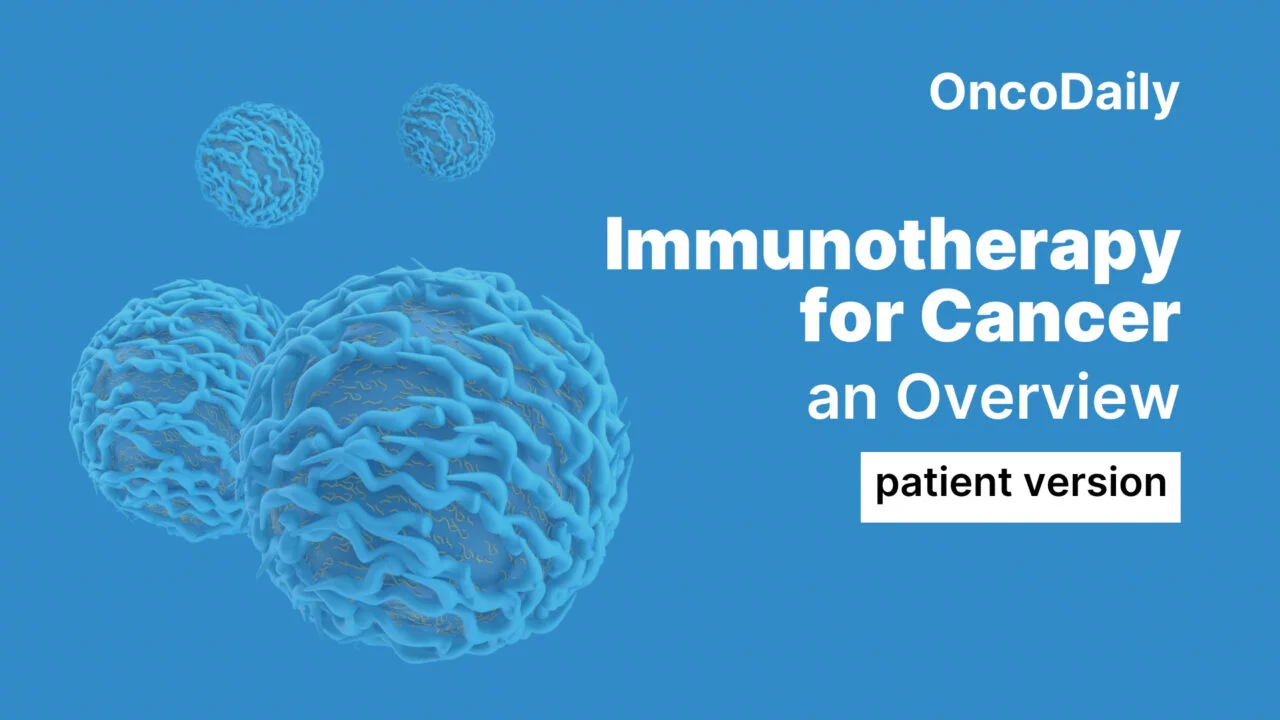
Read About Immunotherapy for Cancer an Overview on OncoDaily
Success Rates of Immune Checkpoint Inhibitors
Checkpoint inhibitors such as pembrolizumab (Keytruda), nivolumab (Opdivo), atezolizumab (Tecentriq), and durvalumab (Imfinzi) have demonstrated significant benefits in several cancers, particularly those with high mutational burden or expression of immune-related biomarkers like PD-L1.
Non-Small Cell Lung Cancer (NSCLC)
In advanced NSCLC, pembrolizumab monotherapy led to a 5-year overall survival (OS) rate of 23.2% in patients with PD-L1 ≥50% tumors, compared to 15.5% in the chemotherapy arm (Garon et al., 2019). When combined with chemotherapy, immunotherapy improves response rates even in PD-L1 negative patients. In the CheckMate 77T (2025) trial, neoadjuvant nivolumab + chemotherapy resulted in a pathological complete response (pCR) rate of 25.3%, compared to 4.7% with chemotherapy alone (Cascone, 2024). The median event-free survival (EFS) was not reached for the combination, compared to 18.4 months for chemotherapy alone. Additionally, Keynote-671 (2024) showed a 24-month EFS of 62.4% for pembrolizumab + chemotherapy, compared to 40.6% for chemotherapy alone (Wakelee, NEJM). These trials highlight the superior survival outcomes with combined therapy over chemotherapy alone.
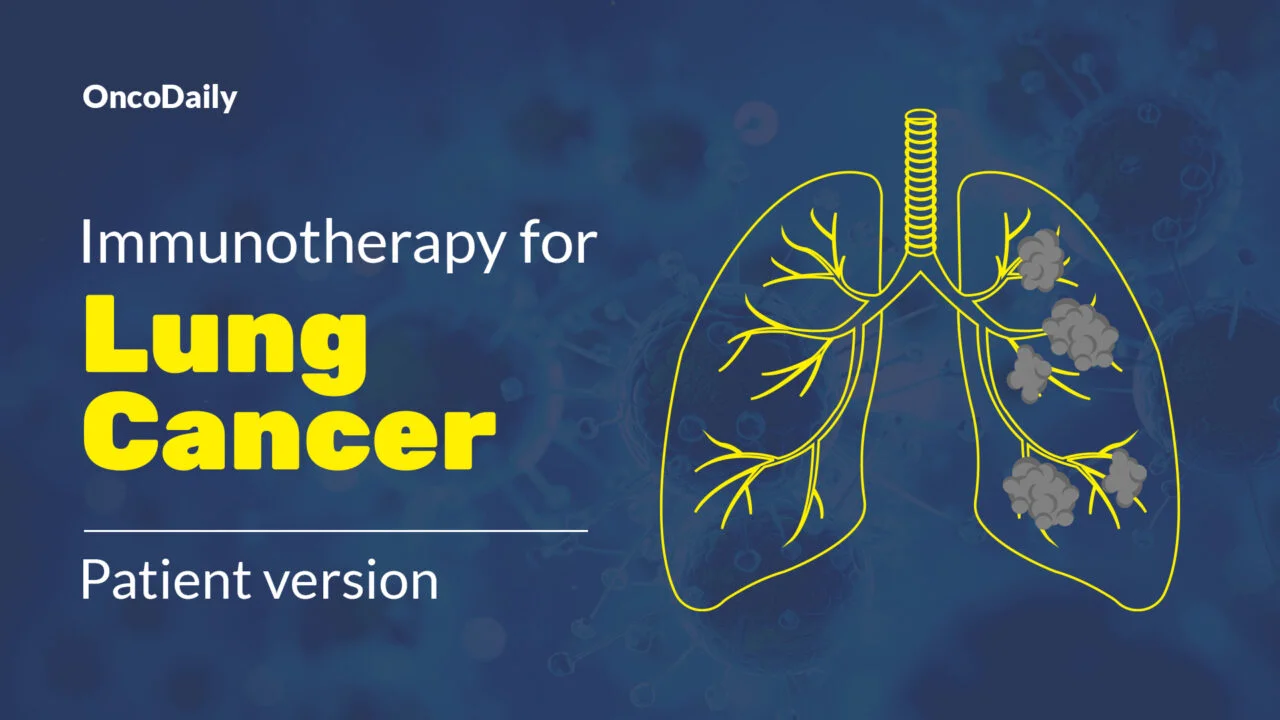
Read About Immunotherapy for Lung Cancer on OncoDaily
Melanoma
Checkpoint inhibitors have revolutionized melanoma care. The combination of nivolumab and ipilimumab (a CTLA-4 inhibitor) has shown a 5-year OS of 52% in advanced melanoma—unheard of in the pre-immunotherapy era (Larkin et al., 2019). Long-term remissions are possible, even after stopping therapy. In contrast, chemotherapy provided a median OS of 6.2 months. Immunotherapy offers a substantial improvement in survival, with response rates as high as 58% for combination therapy.
Bladder Cancer
Atezolizumab and nivolumab are FDA-approved for metastatic urothelial carcinoma. The IMvigor130 trial showed a median OS of 16.0 months for atezolizumab + chemo versus 13.4 months for chemo alone (Powles et al., 2020). Durable responses occur, particularly in patients with high PD-L1 expression. In metastatic bladder cancer, combining chemotherapy with immunotherapy has improved outcomes. In the Niagara Trial (2024), the addition of immunotherapy reduced the risk of recurrence by 32% and the risk of death by 25%compared to chemotherapy alone(Powles, NEJM, 2024).
Head and Neck Cancer
In recurrent/metastatic head and neck squamous cell carcinoma, pembrolizumab improved 2-year OS from 17% (chemo) to 29% in patients with PD-L1 CPS ≥20 (KEYNOTE-048 trial) (Burtness et al., 2019). In the KEYNOTE-689 trial, adding neoadjuvant and adjuvant pembrolizumab to standard care for locally advanced HNSCC improved 3-year event-free survival to 59.8% vs. 45.9% with standard care alone. Overall survival at 3 years was also higher at 68.2% with pembrolizumab, compared to 59.2% for the control group. (Uppaluri et al, NEJM 2025)
Colorectal Cancer (MSI-H/dMMR)
Immunotherapy is especially effective in microsatellite instability-high (MSI-H) or mismatch repair-deficient (dMMR) colorectal cancers. In the KEYNOTE-177 trial, pembrolizumab resulted in a median PFS of 16.5 months vs 8.2 months with chemotherapy (Andre et al., 2020).
Neoadjuvant treatment with dostarlimab (a PD-1 inhibitor) in dMMR solid tumors has shown promising results, allowing nonoperative management in a significant number of patients. In a recent phase 2 study, 84% of patients achieved a clinical complete response, and 80% of them avoided surgery. At 2 years, recurrence-free survival was 92%. These findings suggest that dMMR tumors are highly responsive to ICIs, potentially eliminating the need for surgery in many cases while maintaining excellent long-term outcomes. (Cercek, 2025)
In contrast, microsatellite-stable (MSS) colorectal cancers rarely respond to current checkpoint therapies, although new trials (e.g., BOT/BAL, 2025) are exploring combinations to overcome resistance.
CAR T-Cell Therapy: A Powerful Tool for Blood Cancers
CAR T-cell therapy is one of the most promising forms of personalized cancer treatment, showing dramatic success in hematologic malignancies. It involves modifying a patient’s own T-cells to express chimeric antigen receptors (CARs) that specifically target cancer cells.
Pediatric Acute Lymphoblastic Leukemia (ALL)
The ELIANA trial showed that tisagenlecleucel achieved a complete remission rate of 81% in pediatric and young adult ALL patients, with overall survival of 76% at 12 months (Maude et al., 2018). Long-term remissions have been reported even after a single infusion.
Diffuse Large B-Cell Lymphoma (DLBCL)
In adults with relapsed DLBCL, axicabtagene ciloleucel showed a response rate of 83%, with 58% achieving complete remission in the ZUMA-1 trial (Locke et al., 2019). Two-year survival was 50%, substantially higher than with prior therapies.
Multiple Myeloma
New CAR T therapies targeting BCMA, such as idecabtagene vicleucel, show ORR of 73%, with 33% achieving complete response in heavily pretreated myeloma (Munshi et al., 2021). However, durability remains under evaluation.
CAR T-cell therapy is not without challenges. It is expensive, can cause severe side effects like cytokine release syndrome (CRS) or neurotoxicity (ICANS), and is currently approved only for specific blood cancers.
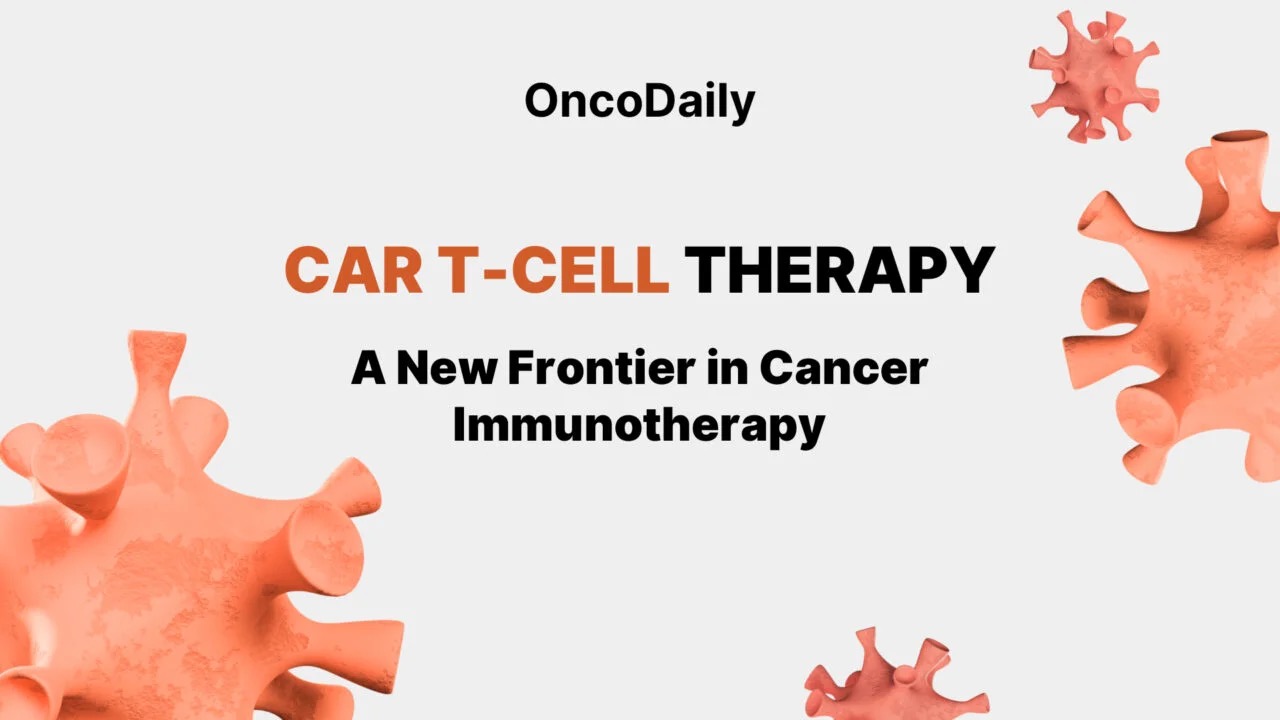
Read About CAR T-Cell Therapy on OncoDaily
Immunotherapy for Solid Tumors: Success and Limitations
While checkpoint inhibitors are used in many solid tumors, durable responses are still limited to a subset of patients.
Triple-Negative Breast Cancer (TNBC)
Atezolizumab combined with nab-paclitaxel was approved for PD-L1+ TNBC, showing a 7.5-month median PFS vs 5.0 months with chemo alone (IMpassion130) (Schmid et al., 2018). However, overall survival benefits have been debated.
Renal Cell Carcinoma
The combination of nivolumab and ipilimumab in first-line metastatic RCC showed OS rates of 67.7% at 18 months vs 60.9% with sunitinib, with complete responses in 9% of patients (CheckMate 214) (Motzer et al., 2019).
Cervical and Endometrial Cancers
Dostarlimab (Jemperli) has been approved for dMMR endometrial cancer, while cemiplimab has shown benefit in recurrent cervical cancer (GOG-3016). For eligible patients, response rates can exceed 40%, a major advance in gynecologic oncology.
What Influences Success Rates?
Immunotherapy’s efficacy is shaped by numerous biological and clinical factors:
- Tumor Type: Cancers with high mutation burden (melanoma, NSCLC, MSI-H colorectal) tend to respond better.
- PD-L1 Expression: Often used as a predictive biomarker, especially in NSCLC and bladder cancer.
- Tumor Microenvironment: Some tumors suppress immune activity via regulatory cells, hypoxia, or immune checkpoint upregulation.
- Patient Immune Health: Prior therapies, age, and infections can impair immune competence.
- Combination Therapies: Immunotherapy combined with radiation, chemotherapy, or targeted therapy often improves outcomes.
Real-World Success and Survival
While clinical trials show promising success rates, real-world data often reveal lower—but still meaningful—benefits. Many patients experience disease stabilization or partial response rather than complete remission. Nevertheless, immunotherapy often improves quality of life compared to chemotherapy and may prolong survival even in late-stage cancers.
In one study analyzing real-world NSCLC outcomes, patients receiving immunotherapy lived a median of 11.5 months vs 7.4 months with chemotherapy alone (Waterhouse et al., 2021).
Side Effects and Risks
Immunotherapy side effects differ from those of chemotherapy. Common toxicities include:
- Fatigue
- Skin rash
- Diarrhea or colitis
- Endocrinopathies (thyroiditis, adrenal insufficiency)
- Pneumonitis
In CAR T-cell therapy, more severe complications like CRS and ICANS can occur. However, most side effects are manageable with timely intervention.
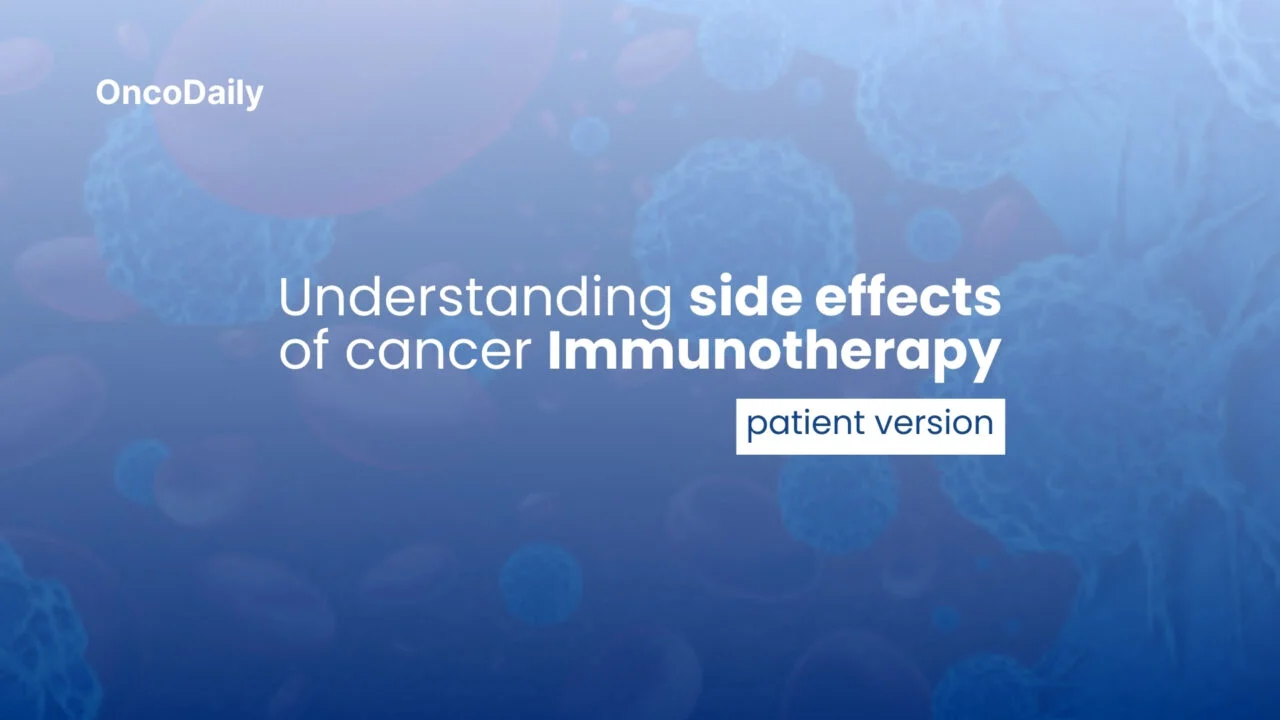
Read About Immunotherapy Side Effects on OncoDaily
Immunotherapy and Cure: What’s Realistic?
While the word “cure” should be used cautiously, immunotherapy has enabled durable, treatment-free remissions in many cancers once considered incurable. In melanoma and Hodgkin lymphoma, long-term survival rates now exceed 50% with immunotherapy. In pediatric ALL, some patients remain disease-free for years after a single CAR T-cell infusion.
However, not all patients respond, and relapse remains a concern. Ongoing trials aim to expand the reach of immunotherapy through personalized approaches, biomarker-guided treatment, and combinations.
Conclusion
Immunotherapy has transformed cancer care, offering new options—and in some cases, new hope—for patients with advanced disease. Success rates vary by cancer type, biomarker profile, and individual factors, but the trend is clear: immunotherapy is here to stay.
For some patients, it may mean longer life. For others, it may offer fewer side effects or better quality of life. For a fortunate few, it may bring lasting remission.
Patients are encouraged to have open conversations with their oncology team about whether immunotherapy is right for them—and to stay informed about the rapidly evolving landscape of cancer treatment.
Read More About Immunotherapy Novels on Our OncoDaily IO page
You Can Watch More on OncoDaily Youtube TV
Written by Armen Gevorgyan, MD
-
Challenging the Status Quo in Colorectal Cancer 2024
December 6-8, 2024
-
ESMO 2024 Congress
September 13-17, 2024
-
ASCO Annual Meeting
May 30 - June 4, 2024
-
Yvonne Award 2024
May 31, 2024
-
OncoThon 2024, Online
Feb. 15, 2024
-
Global Summit on War & Cancer 2023, Online
Dec. 14-16, 2023

